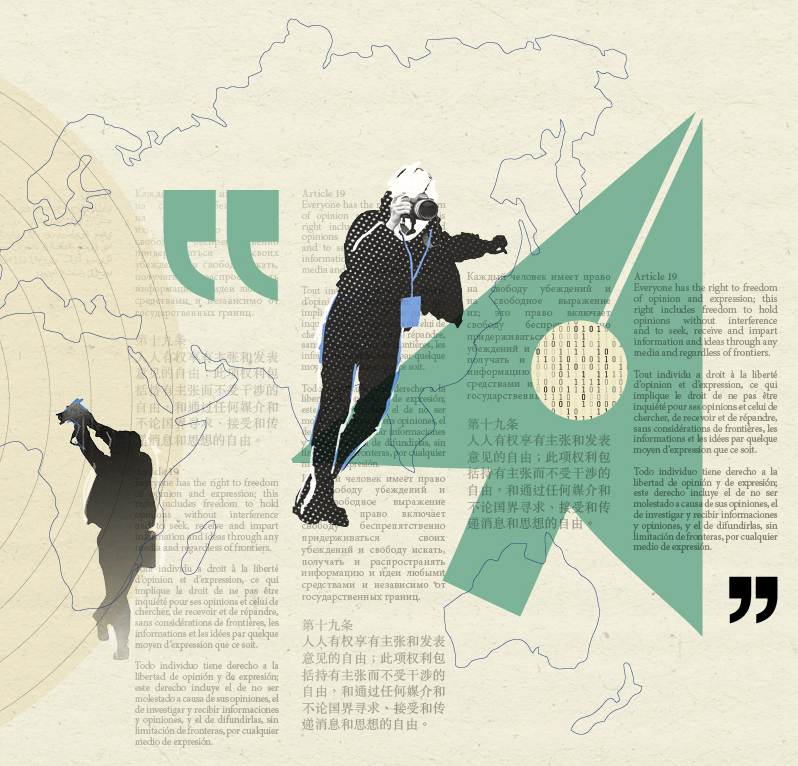News
IPDC approves more than $2 million to support independent media around the world

The IPDC Bureau – comprised of 8 out of the 38 elected Member States that make up the Programme’s intergovernmental Council – allocated nearly $1.8 million to 42 projects. Out of these, 15 projects will be implemented in Africa (36%), 10 in Asia and the Pacific (24%), 9 in Latin America and the Caribbean (21%), 5 in the Arab States region (12%), and 2 in Central and Eastern Europe (5%).
More than half (23) of the projects will be carried out in Least Developed Countries, and 6 (14%) will be implemented in Small Island Developing States. In line with UNESCO’s global priority gender equality, approximately one-third (13) of projects will specifically focus on promoting gender equality in and through the media.
Every year, the Programme issues a call for project proposals from grassroots actors, with the aim of advancing local media development, training, research or dialogue in developing countries, countries in transition, and countries in conflict and post-conflict situations. The projects are proposed by local stakeholders to address identified needs at the local, national, and regional levels.
UNESCO’s Assistant Director-General (ADG) for Communication and Information, Tawfik Jelassi, emphasized the tangible impact of the Programme as he welcomed the newest Bureau members and the Programme’s new Chairperson, Ambassador Raúl Fernandez Daza.
By investing in communities, promoting equality and ensuring the safety and sustainability of journalism, we not only enrich lives today but also sow seeds for a better tomorrow.

This year, the Bureau also approved five special allocations for a total of $245,000. These special initiatives are designed to complement IPDC’s grassroots projects from a global perspective and enhance the Programme’s capacity to tackle emerging issues such as media viability and environmental journalism.
In addition to approving new support, the Bureau reviewed the achievements and lessons learned from initiatives completed in 2023, as summarized in a publicly available results-based report.
The on-the-ground impact of IPDC support was highlighted in brief presentations by two direct beneficiaries, who joined the meeting virtually to speak about their recently completed initiatives. In Kenya, for instance, one project strengthened environmental journalism by developing and institutionalizing new courses for journalism education institutions. In Pakistan, the voices of women and religious minorities were strengthened through newly developed modules and training on community journalism and digital media.
The community we built, though small right now, has given us a blueprint for how we can encourage this community, make them feel safe, and provide them with the tools and resources to create powerful stories about themselves and their communities.
During the meeting, the Bureau also approved the extension of IPDC’s flagship initiative “Supporting Media Safe Spaces for journalists in conflict situations,” which has funded pilot programmes in Ukraine, Pakistan (for Afghan journalists), and Sudan, and is developing regional hubs in Eastern Africa and Latin America and the Caribbean.
IPDC’s leading role in confronting emerging issues like media viability also remained a key focus. Toward that end, the Bureau requested that the non-binding “Development Cooperation Principles on Relevant and Effective Support to Media and the Information Environment” be submitted to the Intergovernmental Council of the IPDC at its next meeting in November 2024, for its consideration and possible endorsement.
The Bureau also welcomed the 2023 report on the monitoring and reporting of SDG Indicator 16.10.2, noting plans for an upcoming 2024 report, and encouraged Member States to continue to highlight the importance of Access to Information and its contribution to development.
ADG Jelassi thanked Member States for their contributions to the Programme, which are critical to its ongoing success. IPDC donors since 2020 include Andorra, Chile, Czechia, Finland, France, Iceland, Ireland, Latvia, Lithuania, Luxembourg, The Netherlands, Norway, Oman, Poland, Sweden, Uruguay, and ICESCO, and two private sector supporters, the Internet Society and Google. Ireland’s first donation to the Programme was made this month, and a letter of contribution from the Russian Federation is being finalized.
The Bureau further called upon Member States to ensure adequate funding for the IPDC moving forward, in order to enable it to continue carrying out its essential mission of supporting free, independent, and pluralistic media.

International Programme for the Development of Communication (IPDC)
Learn more about the IPDC and read about the Programme’s achievements over the past two years here.





